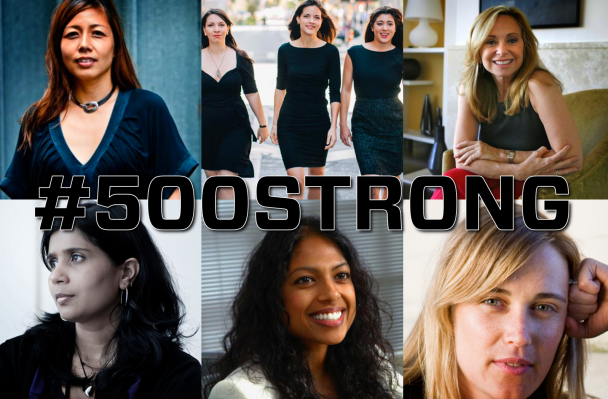“The best thing women in tech can do is to invest in other women,” 500 Startups managing partner Christine Tsai told me. That’s exactly what the early-stage investment firm has been trying to do over the last five years, and it seems to be succeeding.
Its commitment starts with the makeup of the organization itself, but extends into the portfolio companies that 500 backs. Half the managing partners and staff at 500 Startups are women, and at least one-third of the investing team are women. More than a quarter of the companies in the 500 portfolio are led by female CEOs, according to the firm.
It’s also been working to create programs that invest in female-led companies and include more women in the conversation. The firm introduced its 500 Women AngelList syndicate last fall and pledged to invest $1 million in 10 female-led companies in the portfolio.
Tsai says she is well aware of the sexism and discrimination that often plagues Silicon Valley. She’s witnessed the occasional remark about a female VC’s breasts and heard the stories of pregnant female founders being questioned about how serious they are about their careers by potential investors.
But rather than talk about the problem, Tsai says we need to put our money where our mouth is.
“There is a problem but we need to focus on the positive by getting more women in VC and investment roles and invest in the women,” she says.
Other accelerators such as Y Combinator have pledged to include more women and diversity in its ranks. According to a blog post released last summer, nearly 20 percent of all YC-funded startups have a woman on the founding team. Four of the full-time partners are also women.
“We think YC can help drive real change, and we hope lots of other organizations will join,” wrote YC president Sam Altman.
500 Startups founding partner Dave McClure says he’s already been working on recognizing women in tech for the last five years and will continue to do so.
“We are committed to working with women. We are investing in women because we want to make money and we feel they have been overlooked. Others have been touting it, but we haven’t really been publicizing it,” he told me. “Is this self-promotional? Sure as hell is. But the numbers speak for themselves.”
